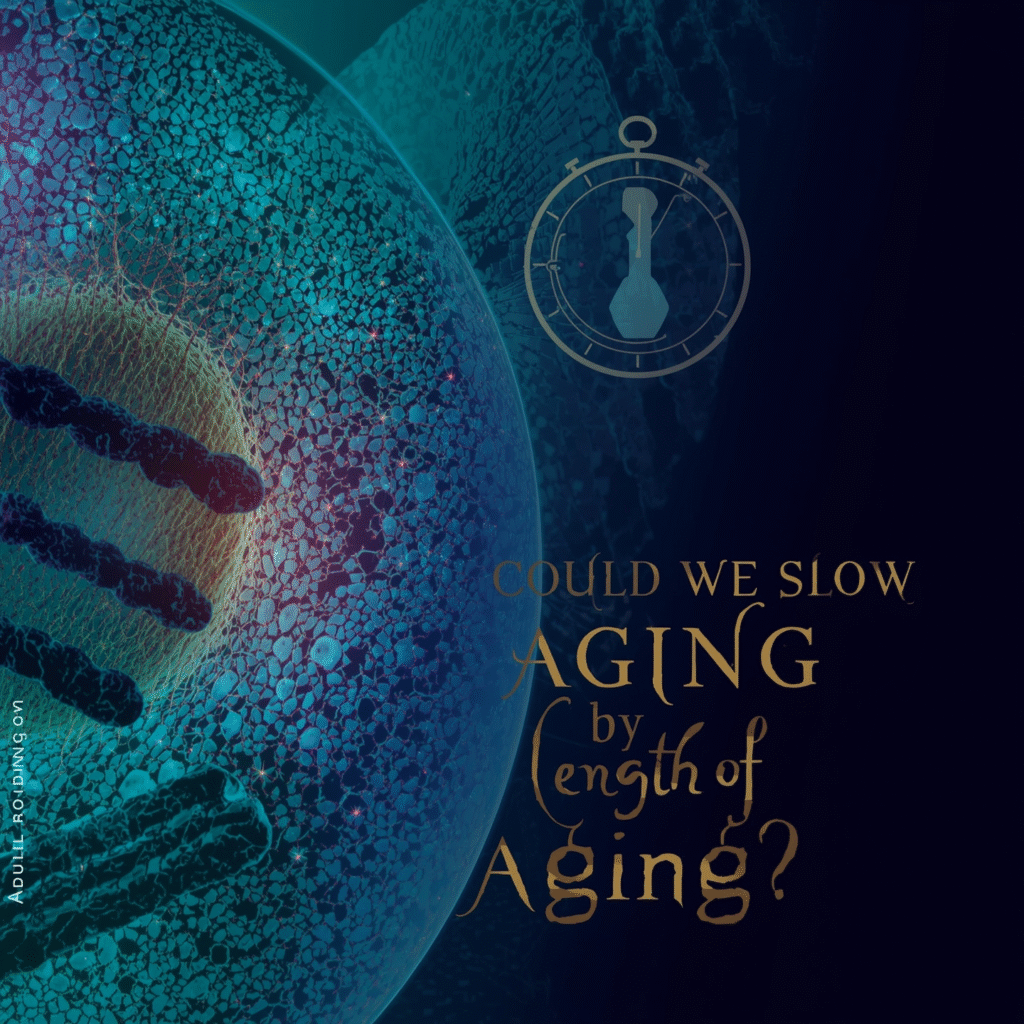By Swayam Nerkar
An eye-opening look at how tiny tweaks in cell division might change the way we age.
Introduction: Aging — not just skin deep
From expensive creams and anti-ageing diets to futuristic gene therapy, humanity has long searched for ways to stay younger for longer. But what if the greatest anti-aging secret isn’t found in a lab or spa — but inside an invisible process happening billions of times a day in your own body? Recent research suggests that how long our cells spend in telophase, a stage of cell division, may be silently influencing how fast we age. Could deliberately stretching or controlling telophase be the key to healthier, longer-lasting cells — and therefore a younger body?
The Basics: What actually is telophase?
Every living thing grows, heals, and survives thanks to mitosis — the process of cell division. It’s like a microscopic assembly line with carefully timed steps. Telophase is one of the final stages in this process where the genetic material that was earlier split between two cell “poles” begins to rebuild two new nuclei. Think of it like twins getting their own bedrooms after sharing one large space.
Here’s why telophase is so crucial:
- The cell slows down to make sure DNA hasn’t been damaged during division
- Nuclear envelopes re-form around the DNA
- Chromosomes start to relax and become functional again
- The cell prepares for its final split (cytokinesis)
By the end of telophase, the cell is ready to become two daughters — ideally with healthy, accurate copies of genetic information. Imagine copying a textbook; telophase is the final step where you staple the pages and put the cover back on. If rushed, you might share the wrong content…and over time, those mistakes add up.
Why scientists are obsessed with telophase in aging research
So what does telophase have to do with wrinkles, memory loss, and joint pain? According to emerging studies in cellular biology, telophase might influence how carefully or carelessly our DNA is handled during cell division. When telophase is rushed or goes wrong, small errors can creep into DNA packaging. These are known as chromosomal mis-segregations or DNA damage — and scientists now believe they may be aging accelerators.
Some recent discoveries:
- Errors in telophase → faster accumulation of damaged cells over a lifetime
- Damaged cells → slower tissue repair, weak immune response, loss of muscle, etc.
- By tweaking the length of telophase, it may be possible to give cells extra time to catch mistakes, thereby reducing long-term damage.
“Timing is Everything”
How controlling telophase might slow aging
Imagine a security check at the airport. If passengers race through without inspection, dangerous items might slip by. Similarly, if a cell rushes through telophase, damaged DNA might be passed on to the next generation of cells. Over decades, such “bad copies” accumulate and show up as age-linked problems like organ deterioration or memory decline.
Scientists are now exploring ways to extend the duration of telophase so that cells have a little more time to:
- Repair DNA breaks
- Correct misaligned chromosome fragments
- Rebuild stronger nuclear envelopes
- Signal for cleanup if something went terribly wrong
This extended telophase could theoretically result in:
✔ Fewer faulty cells
✔ Slower build-up of aging damage
✔ Organs staying healthier and younger for longer
It’s not about stopping cell division — just giving the cell an extra moment to “double-check” its work.
How could we actually control telophase?
This is where modern science gets exciting. Researchers are experimenting with multiple approaches:
- Tiny molecules (chemicals)
Drugs that can bind to proteins active during telophase, slowing down chromosome relaxation or nuclear envelope reconstruction. Early testing in yeast and animal cells is showing promise. - Gene editing
CRISPR-based tools that tweak genes responsible for mitotic timing. By slightly altering “timer” genes for telophase, scientists were able to delay its completion without stopping mitosis entirely. - Lifestyle-based control?
Yes — surprisingly, diet and stress influence proteins involved in telophase. Caloric restriction, antioxidants, and certain plant molecules (like resveratrol) may naturally prolong this stage, leading to better DNA quality control. It’s too early to claim “eat blueberries to extend telophase”, but research is heading in that direction. - Lab-grown proof
A Harvard-based synthetic biology team is working on human stem cells that divide with an experimentally extended telophase. These modified cells show:
- 25–30% fewer DNA errors
- Slower aging markers like telomere shortening
- Less inflammatory signaling
But is tampering with telophase risky?
Absolutely — any attempt to slow cell division can backfire if not controlled.
Potential dangers:
⚠ Cell cycle slowdown → impaired wound healing
⚠ Prolonged mitosis → chances for unwanted mutations
⚠ Interference with telophase in fast-growing cells (like hair or immune cells) → fatigue, hair thinning, immune drop
That’s why researchers argue that telophase control should be targeted only in specific organs or tissues, not across the whole body. For example, extending telophase in brain cells (which divide less often) could protect against dementia — but doing the same in gut cells could leave you with digestion issues.
“From Lab Theory to Real-Life Application”
Can telophase control help fight age-related diseases?
Scientists aren’t just chasing eternal youth for vanity — extending telophase could have major implications in fighting age-related illnesses. Since many chronic diseases are caused by a buildup of damaged or poorly functioning cells, telophase timing might offer a brand-new medical strategy.
Some exciting possibilities include:
- Alzheimer’s & dementia: Keeping brain cells genetically healthier by giving them extra telophase time may improve memory and slow neurological decline.
- Arthritis & bone loss: Cells in the joints and bones often divide with DNA errors. Better telophase surveillance might reduce inflammatory by-products, easing pain and stiffness.
- Cancer prevention: Ironically, controlling telophase could stop cancerous cells from multiplying too fast — a delayed telophase could act as a speed-breaker, forcing mutated cells to self-destruct rather than divide.
Will we all be taking ‘telophase pills’ one day?
Pharmaceutical companies are already testing molecules known as “mitotic modulators” — drugs that don’t stop but fine-tune the timing of each phase of mitosis. The dream? A once-a-day tablet that selectively extends telophase in high-risk organs like the brain, heart, and pancreas.
Imagine visiting your doctor in 2040 and getting a prescription designed to keep your telophase slower but more careful — potentially delaying aging from the inside out.
However, researchers warn: a personalized approach is essential. Too much telophase extension might be as harmful as too little. The future of anti-aging could lie in customized telophase-tuning therapies based on your genetics, lifestyle, and even your stress levels.
The ethical dilemma: Should we control cellular time?
As with all breakthrough ideas, telophase manipulation raises big-picture questions:
- Would only wealthy people be able to afford age-slowing telophase treatments?
- Could longer lives lead to overcrowding, resource shortages, or changing retirement ages?
- Will future laws regulate how much we can tamper with our own cell cycles?
- Might slowing telophase in young people affect natural evolution and biology?
Society will need to debate these moral issues long before telophase-based anti-aging treatments hit the pharmacy shelves.
Conclusion: Small pause, big future
The idea sounds almost poetic — that by slowing down just a tiny phase of cell division called telophase, we might slow the much bigger process of aging. While still mostly experimental, this bold hypothesis is catching fire in the scientific world. If true, it could reshape modern medicine, help us fight age-related diseases at their root, and possibly allow future generations to age healthier — not just longer.
Sometimes, the most powerful breakthroughs aren’t about adding something new — but about learning when to slow down.







